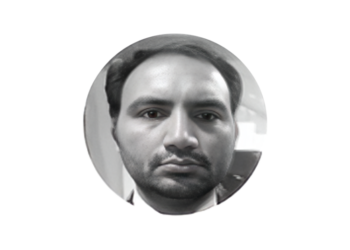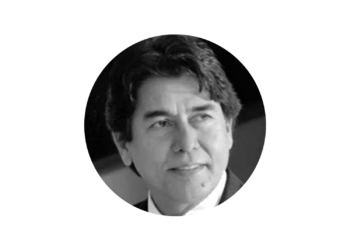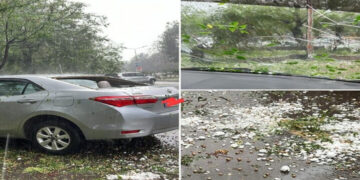A few days ago, a Telegram channel based in Kyiv, the capital of Ukraine, circulated a rumor suggesting the imminent arrival of Jewish refugees from Israel in Dagestan. This led to approximately two hundred people rushing to the airport, causing a disturbance. Fortunately, the situation was resolved within a few hours, and a lesson was imparted not to chase after a truck’s brake lights without proper identification. The question posed was, “Why pursue a vehicle after it has departed from Ukraine?”
In response to this, a meeting chaired by Russian President Vladimir Putin took place approximately four to six days ago, attended by the President of Dagestan and security officials. During this meeting, Putin made a statement that forms the focal point of our discussion today. He conveyed a message to the people of Dagestan, suggesting that those genuinely passionate about playing a role should engage in the conflict in Ukraine, emphasizing its significance in determining the fate of Russia, the global landscape, and Palestine.
Putin’s unusual assertion implies that a victory for Russia and its allies in Ukraine would not only signify a military triumph but also a political one. Such an outcome would enhance Russia’s military and political influence, subsequently amplifying its role in world politics. When viewed in the context of BRICS, Putin’s intentions become clearer. When a world leader addresses a complex geopolitical issue, two key aspects should be considered: their political power to resolve the problem and their historical approach to such challenges. Putin implies that the resolution lies in the outcome of the war in Ukraine, a decision expected within the next four to six months.
Examining Putin’s track record, his notable achievement lies in the handling of Chechnya’s second armed uprising. While he initially used military force to crush the rebellion, Putin recognized that merely quelling the uprising did not constitute a solution. In a strategic move, he proposed granting internal autonomy to seven Muslim states, limiting Moscow’s authority to defense, finance, and foreign affairs. All other powers were delegated to these states, allowing them legislative and financial independence. This marked a departure from the declaration of autonomy in the early years of the Russian Revolution, as Putin transformed this concept into a tangible reality.
The internal autonomy granted not only to the seven Muslim states but also to all 20 states with declared independence a century ago exemplifies Putin’s commitment to lasting solutions. This historic move was accompanied by the reconstruction of the capital, Grozny, into a city of enviable beauty, with the centerpiece being the Jama Masjid, a testament to Muslim culture.
Putin’s dedication to addressing the concerns of Russian Muslims is evident in the construction of 86,000 mosques during his tenure. Despite religious restrictions during the Soviet era, Putin facilitated the resurgence of religious infrastructure, catering to the needs of 11.4 million Russian Muslims.
The level of trust between Moscow and Chechnya is exemplified by the Chechen army’s commendable role on the front lines of Ukraine. Former rebels, once in conflict with Moscow, are now defending the Russian state. Putin’s reliance on the Chechen army for crucial tasks, such as besieging the city of Rostov, underscores the transformation of adversaries into trusted allies.
Putin’s approach goes beyond military conquest; it emphasizes lasting solutions achieved through dialogue. The internal autonomy offered to Muslim-majority states is a testament to Putin’s foresight in distinguishing between defeating rebels and providing a comprehensive solution. His response to the Pope’s statement regarding Muslim soldiers in the Russian army highlights Moscow’s commitment to unity and cultural inclusivity.
The Pope stated that the brutality in Ukraine is not being done by the Russian army, but by its Muslim soldiers, so Russia should not be blamed. The Russian Foreign Minister reacted so strongly that the Pope had to send a formal apology to Moscow. Russian Foreign Minister Sergei Lavrov said “There is no discrimination in Russia. We are all Russians. We consider Muslim culture as a part of Russian culture. Their color is our own color.”
In the context of Putin’s perspective on the war in Ukraine influencing the future of the Palestinian issue, there is a palpable sense of hope. Putin’s track record indicates a willingness to find comprehensive solutions, even if it means yielding to the formerly subjugated. The ray of hope emanating from Putin’s strategic approach could potentially transform into a beacon for the Palestinians. May this prospect materialize into reality.





























